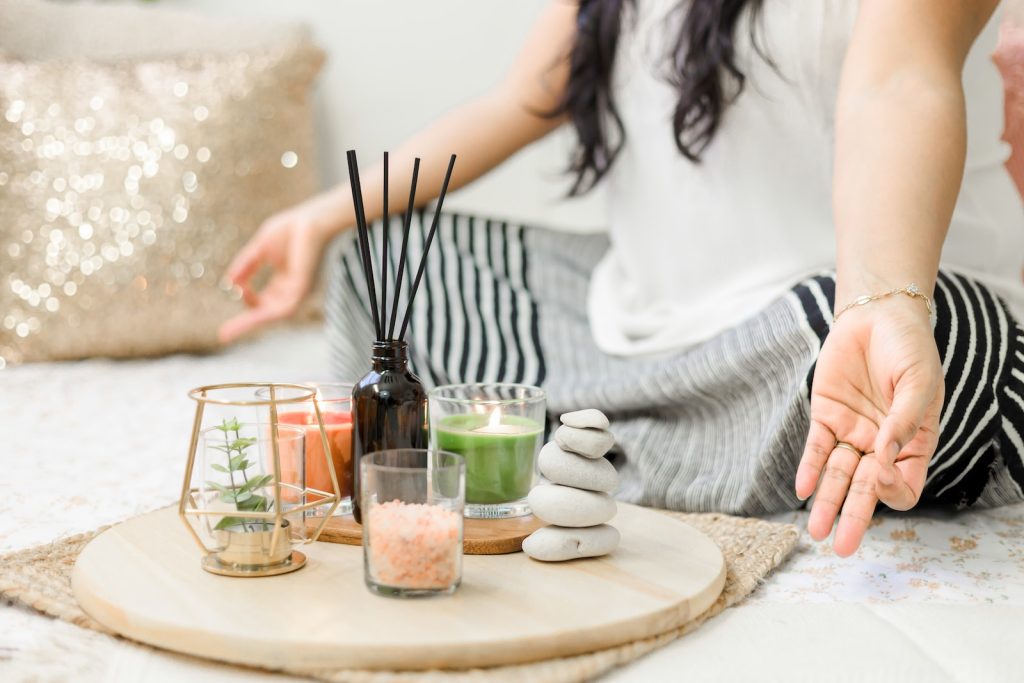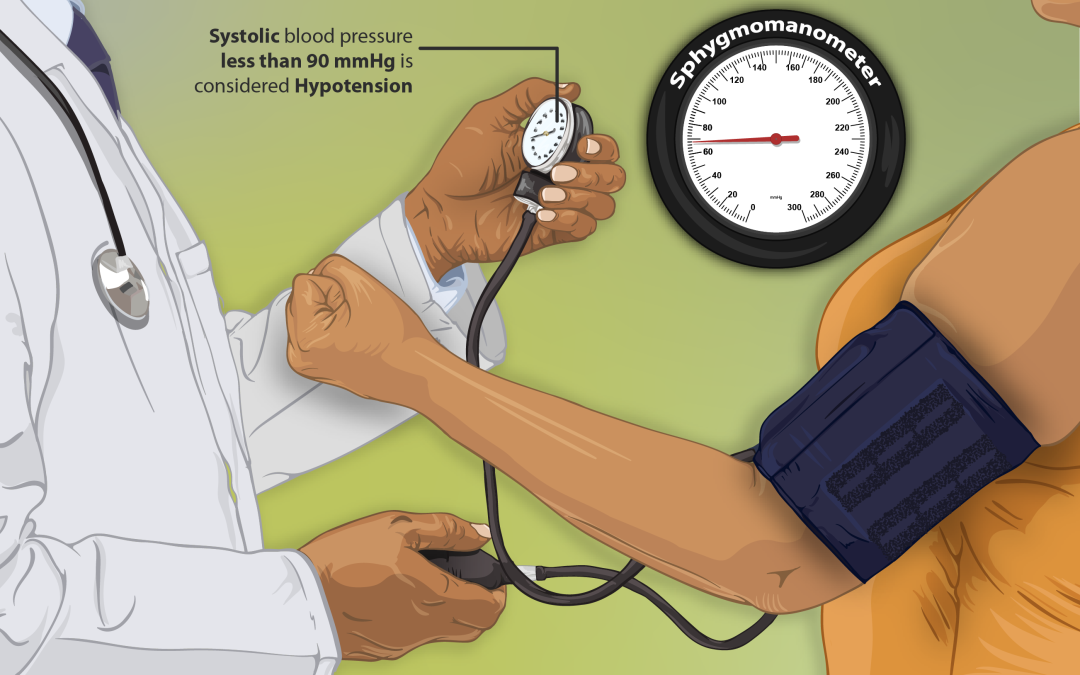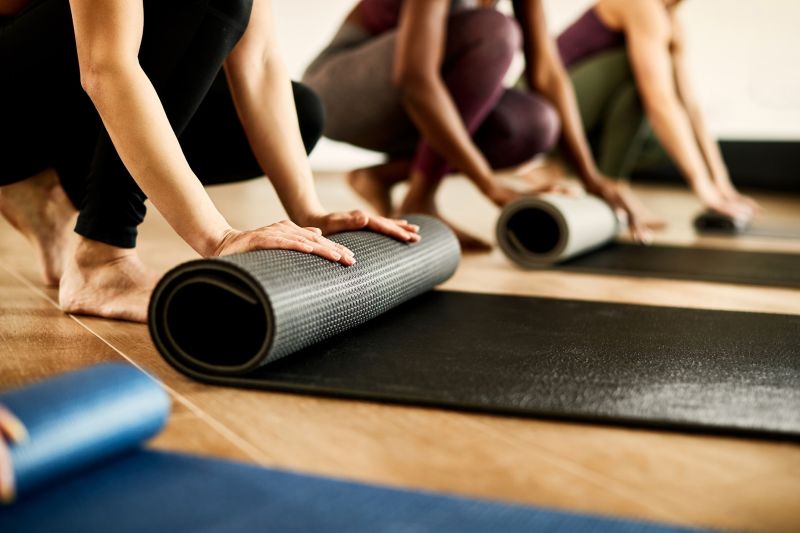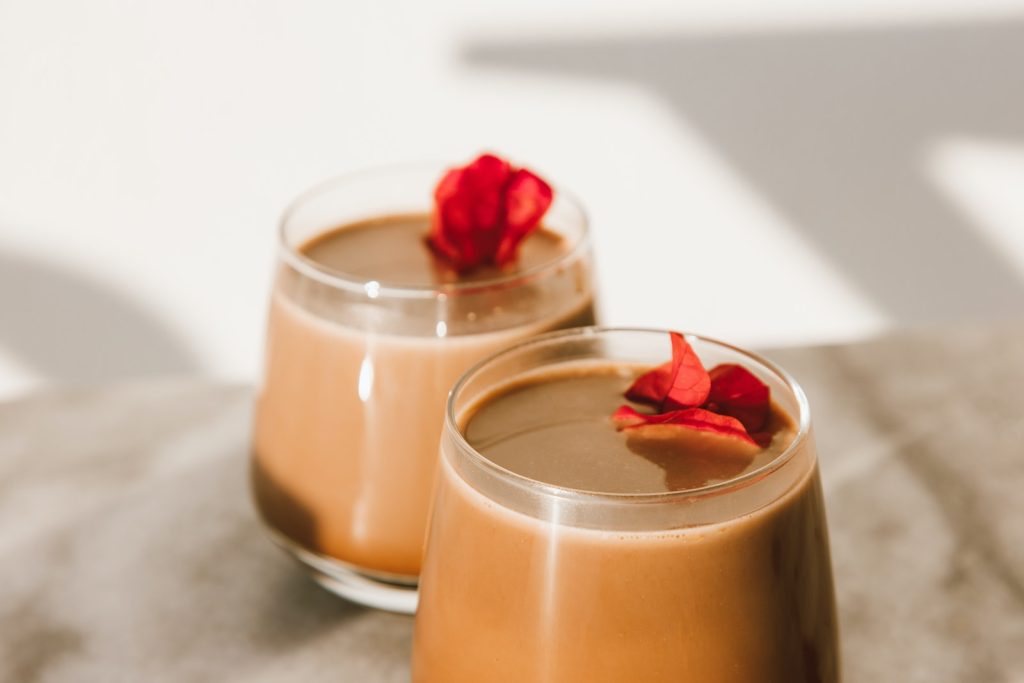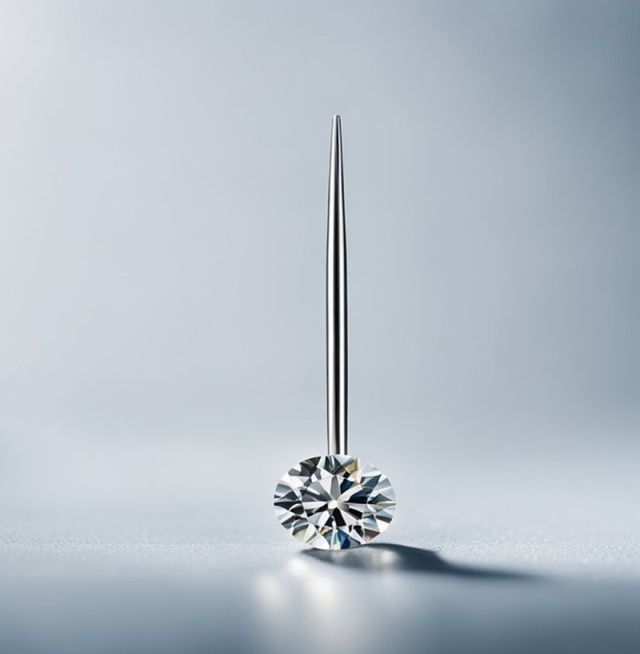
by Health And Healing AI | Oct 18, 2023 | Health, Mindfulness
Unlock Your Full Potential – Fasting and Meditation, the Ultimate Duo for Mind-Body Mastery

Fasting and meditation strategies for overall well-being. Photo by Shashi Chaturvedula
How Fasting and Meditation Reshape Your Brain
Fasting and meditation are two practices that have been used for centuries to promote physical, mental, and spiritual well-being.
Fasting involves abstaining from food or drink for a certain period, while meditation involves focusing the mind on a particular object, thought, or activity.
Both practices have been shown to have numerous health benefits, and when used together, they can be a powerful tool for achieving optimal health and well-being.
One of the main benefits of fasting and meditation is that they can help to reduce stress and anxiety.
When we fast, our body goes into a state of ketosis, which has been shown to reduce levels of cortisol, the stress hormone.
On the other hand, meditation has been shown to reduce activity in the amygdala, the part of the brain responsible for the fight-or-flight response.
By combining fasting and meditation, we can create a powerful daily tool for managing stress and anxiety.
Another benefit of fasting and meditation is that they can help to improve our overall health and well-being.
Fasting has been shown to improve insulin sensitivity, reduce inflammation, and promote cellular repair.
Conversely, meditation has been shown to improve immune function, reduce blood pressure, and improve sleep quality.
By practicing fasting and meditation together, we can create a powerful synergy that can help to promote optimal health and well-being.
Understanding Fasting and Meditation
Fasting and Meditation’s Profound Mental Benefits
Fasting and meditation are two ancient practices used for centuries to improve health and well-being.
As someone who has practiced both, I can attest to the benefits they can provide when used together.
What is Fasting?
Fasting is the practice of abstaining from food or drink for some time. There are many different types of fasting, including intermittent, water, and juice.
The benefits of fasting include improved metabolism, reduced inflammation, and increased energy levels.
Fasting has also improved mental clarity, reduced stress, and promoted a positive outlook.
What is Meditation?
Meditation is a practice that involves training the mind to focus and be present in the moment.
There are many unusual types of meditation, including mindfulness, loving-kindness, and transcendental meditation.
The benefits of meditation include reduced stress and anxiety, improved concentration and focus, and increased feelings of calm and relaxation.
How do Fasting and Meditation Work Together?
Fasting and meditation can work together to provide even more significant benefits than when practiced individually.
When you fast, your body enters a state of ketosis, a metabolic state that can increase mental clarity and focus. It can make entering a meditative state easier and deepen your practice.
Additionally, fasting can help to reduce distractions and allow you to focus more fully on your meditation practice.
When your body is not focused on digesting food, your mind can focus on meditation.
In conclusion, fasting and meditation are powerful practices that can improve your health and well-being.
When used together, they can provide even more significant benefits.
If you are interested in fasting and meditation, consult a healthcare professional to ensure it is safe.
Benefits of Fasting and Meditation
How Fasting and Meditation Redefine Well-being.
Fasting and meditation are two practices that have been around for centuries and are known to have many benefits.
Combining the two can lead to even more significant advantages for both physical and mental health.
Physical Health Advantages
Fasting has been shown to have numerous physical health benefits. Here are some of the most notable:
- Weight Loss: Fasting can help with weight loss by reducing calorie intake and increasing metabolism. It can also help reduce belly fat, which is linked to many health problems.
- Improved Blood Sugar Control: Fasting has been shown to improve insulin sensitivity, which can help regulate blood sugar levels and reduce the risk of type 2 diabetes.
- Reduced Inflammation: Fasting has been shown to reduce inflammation in the body, which can help prevent chronic diseases such as heart disease, cancer, and arthritis.
Meditation also has physical health benefits, such as:
- Reduced Stress: Meditation can help reduce stress levels, positively impacting physical health. Chronic stress is linked to many health problems, including heart disease and high blood pressure.
- Improved Sleep: Meditation can help improve sleep quality and duration, essential for overall health and well-being.
Mental Health Benefits
Fasting and meditation also have many mental health benefits. Here are some of the most notable:
- Increased Focus: Fasting can help increase focus and concentration, benefiting work, school, and other activities.
- Improved Mood: Meditation has been shown to improve mood and reduce symptoms of anxiety and depression.
- Increased Self-Awareness: Meditation can help increase self-awareness, leading to greater self-understanding and personal growth.
In conclusion, fasting and meditation have numerous benefits for both physical and mental health. Combining the two practices can lead to even more significant advantages.
Different Types of Fasting and Meditation
As I delve deeper into the world of fasting and meditation, I have learned that there are diverse types of fasting and meditation. In this section, I will briefly discuss some of the most popular types of fasting and meditation.
Intermittent Fasting
Intermittent fasting is a type of fasting that involves cycling between periods of eating and fasting.
There are diverse types of intermittent fasting, but the most popular ones are the 16/8 method, the 5:2 diet, and alternate-day fasting.
The 16/8 method involves eating within an 8-hour window and fasting for the remaining 16 hours.
The 5:2 diet involves eating normally for five days and restricting calories to 500-600 for the remaining two days. Alternate-day fasting involves fasting every other day.
Spiritual Fasting
Spiritual fasting is a type of fasting that is practiced by many religions, including Christianity, Islam, and Judaism.
It involves abstaining from food and sometimes water for a certain period to purify the body and mind. Spiritual fasting can be done individually or as a group, often accompanied by prayer and meditation.
Mindfulness Meditation
Mindfulness meditation is a type of meditation that involves focusing on the present moment and accepting it without judgment.
It is often practiced by sitting in a quiet place and focusing on the breath, the body, or a specific object.
Mindfulness meditation has been shown to reduce stress and anxiety, improve sleep, and increase empathy.
Transcendental Meditation
Transcendental meditation is a type of meditation that involves repeating a mantra or sound in a specific way.
It is often practiced for 20 minutes twice daily while sitting comfortably with closed eyes. Transcendental meditation has been shown to reduce stress, improve focus, and increase creativity.
In conclusion, there are diverse types of fasting and meditation, each with its benefits.
Whether you are looking to improve your physical health, spiritual well-being, or mental clarity, there is a type of fasting or meditation that can help you achieve your goals.
Combining Fasting and Meditation
Optimal Health Unveiled: The Transformative Effects of Fasting and Meditation
When done correctly, combining fasting and meditation can be a powerful tool to promote physical, mental, and spiritual health.
However, it’s essential to approach this practice with caution and care. In this section, I will discuss how to incorporate both practices into your routine and potential challenges that may arise.
How to Incorporate Both into Your Routine
If you’re new to fasting and meditation, starting slowly and gradually building up your practice is best. Here are some tips on how to incorporate both into your routine:
- Choose a fasting method that works for you: There are many diverse types of fasting, from intermittent to extended water fasting. Choose a method that fits your lifestyle and health needs.
- Start with short meditation sessions: If you’re new to meditation, start with short sessions of 5-10 minutes and gradually increase the length as you become more comfortable.
- Meditate during your fasting period: Many people find it helpful to meditate during their fasting period, as it can help reduce hunger pangs and increase focus.
- Stay hydrated: It’s essential to stay hydrated during fasting and meditation. Drink plenty of water and herbal teas to nourish your body and mind.
- Be gentle with yourself: Fasting and meditation can be challenging, especially when combined. Be gentle with yourself and listen to your body’s needs.
Potential Challenges and Solutions
While fasting and meditation can be beneficial, there are also potential challenges that may arise. Here are some familiar challenges and solutions:
- Hunger and fatigue: It’s normal to experience hunger and fatigue during fasting. To combat this, get enough rest and nourishment during your non-fasting periods.
- Difficulty focusing: Meditation can be challenging when feeling hungry or tired. To help with focus, try meditating in a quiet, distraction-free environment.
- Consult with your healthcare provider before starting fasting or meditation practice.
- Emotional challenges: Fasting and meditation can bring up difficult emotions and feelings. If you’re struggling emotionally, seek support from a therapist or counselor.
By incorporating fasting and meditation into your routine with care and attention, you can reap the many benefits of these practices.
Remember to listen to your body and be gentle with yourself as you explore this powerful combination.
Scientific Research on Fasting and Meditation
As the popularity of fasting and meditation has grown, so has scientific research. Here are some recent studies and future research directions in the field.
Recent Studies
In one study, researchers found that intermittent fasting can improve health conditions such as obesity, diabetes, cardiovascular disease, cancers, and neurological disorders.
The evidence is less clear for lifespan effects. Animal studies have shown mixed results, with sex, food, and age influencing the effects of fasting [1].
Another study found that meditation can induce fundamental, measurable changes in the brain.
Researchers Antoine Lutz and Richard Davidson found patterns of electrical activity in the brains of longtime meditators differed significantly from those of other study participants.
It suggests meditation could positively affect brain function and mental health [2].
Future Research Directions
While there is already a substantial body of research on fasting and meditation, there is still much to learn. Future research could focus on the following areas:
- Mechanisms of action: How exactly do fasting and meditation affect the body and brain? Researchers could explore the physiological and biochemical changes that occur during these practices.
- Optimal timing and duration: What is the ideal timing and duration of fasting and meditation for different health outcomes? Researchers could investigate the effects of different fasting and meditation schedules on various health conditions.
- Individual differences: How do factors such as sex, age, genetics, and lifestyle influence the effects of fasting and meditation? Researchers could explore individual differences in response to these practices.
Scientific research on fasting and meditation is still in its initial stages, but the findings suggest these practices could have significant health benefits.
Frequently Asked Questions
1. What is fasting, and how does it benefit the body and mind?
Fasting is abstaining from food for a specific period.
It benefits the body by promoting detoxification, improved metabolism, and weight management. Fasting also enhances mental clarity and focus, contributing to better overall well-being.
2. What is meditation, and how does it support mental and emotional health?
Meditation is a mindfulness practice that involves focused attention and deep relaxation.
It supports mental and emotional health by reducing stress, anxiety, and depression. It fosters emotional balance, enhances self-awareness, and improves overall mental well-being.
3. How do fasting and meditation work together to improve health?
Fasting and meditation complement each other beautifully.
Fasting detoxifies the body and enhances focus, making meditation more effective.
Meditation, in turn, reduces stress and supports mindful eating during fasting, creating a powerful synergy for mind and body health.
4. Can I combine fasting and meditation even if I’m new to both practices?
Yes, absolutely! Both fasting and meditation can be tailored to your comfort level.
Start with shorter fasting periods and beginner meditation techniques, then gradually progress as you become more comfortable with the practices.
5. What are the different fasting methods I can explore alongside meditation?
Popular fasting methods include intermittent fasting, water fasting, and time-restricted eating.
You can choose the one that suits your lifestyle and combine it with meditation for optimal results.
6. Are there any scientific studies supporting the benefits of fasting and meditation?
Numerous studies have shown the positive effects of fasting and meditation on physical and mental health. These practices have been linked to improved cardiovascular health, reduced inflammation, and enhanced cognitive function, among other benefits.
7. Can fasting and meditation help with weight management?
Yes, they can. Fasting can aid in weight loss and maintenance, while meditation helps develop mindful eating habit, making it easier to manage your weight effectively.
8. Is it safe to practice fasting and meditation together?
When done mindfully and with proper guidance, combining fasting and meditation is safe for most people.
However, consulting with a healthcare professional is essential, especially if you have underlying health conditions.
9. How long does it take to see noticeable improvements in mind and body health through fasting and meditation?
The time for noticeable improvements varies from person to person. Some may experience benefits within a few weeks, while others may take longer. Consistency is vital to seeing lasting results.
10. Are there any potential challenges in combining fasting and meditation, and how can I overcome them?
Challenges may include hunger pangs during fasting or difficulty focusing during meditation.
These are common but can be managed with gradual practice and mindfulness techniques. Staying hydrated and seeking guidance from experienced practitioners can also be helpful.
Conclusion
In conclusion, fasting and meditation are ancient practices used for thousands of years to improve physical and mental health.
Both practices have been shown to have numerous benefits for the body and mind, including increased energy levels, reduced stress, and improved focus and clarity.
If you plan to fast and meditate, it is essential to consult with your doctor first, especially if you have any medical conditions that may preclude you from fasting. Additionally, starting slowly and gradually increasing the duration and intensity of your fasting and meditation practices is essential.
Staying hydrated during fasting and replenishing your body with nutrients after breaking the fast is essential. Eating a balanced diet and avoiding processed foods can help maximize the benefits of fasting.
Meditation is practiced in various forms, including mindfulness, loving-kindness, and transcendental meditation.
Experimenting with different forms of meditation can help you find the one that works best for you.
Incorporating fasting and meditation into your daily routine can profoundly impact your physical and mental well-being.
With patience, dedication, and the guidance of a healthcare professional, you can experience the benefits of these ancient practices.
H3 Summary
“Fasting and Meditation: A Powerful Combination for Mind and Body Health”
The quest for holistic health and well-being has become paramount in today’s fast-paced world.
Amidst the array of wellness practices, two ancient techniques stand out as powerful allies in achieving a harmonious and thriving life: fasting and meditation.
This article delves into the profound constructive interaction between fasting and meditation, unveiling their transformative effects on the mind and body.
Fasting, a practice of abstaining from food for a specified period, has been revered for its physical and mental benefits for centuries.
When combined with meditation, the results are nothing short of extraordinary.
Fasting detoxifies the body and enhances mental clarity and focus, making it the perfect complement to meditation—a practice renowned for reducing stress, boosting mindfulness and fostering emotional balance.
Together, they create a powerful constructive interaction that improves physical health and elevates mental and emotional well-being.
Join us on this enlightening journey as we explore the science, techniques, and life-changing benefits of harmonizing fasting and meditation for a healthier, more fulfilling life.
H3 Wrap-Up
Are you ready to embark on a transformative journey toward better mind and body health? Start today by integrating fasting and meditation into your daily routine.
Discover the incredible benefits that await you. Join us on this path to wellness and experience the profound synergy of fasting and meditation for yourself. Begin your journey now!
P.S. Don’t miss the opportunity to enhance your well-being with the potent combination of fasting and meditation.
It’s an integrated approach that can unlock a healthier, happier you. Take the first step towards a harmonious life today!

by Health And Healing AI | Oct 17, 2023 | Health
Lower Your Blood Pressure Naturally: Effective Remedies
Lowering high blood pressure is essential to maintaining good health and preventing serious health conditions such as heart disease and stroke. While medication is often prescribed to manage high blood pressure, natural remedies can also be effective in reducing blood pressure levels. In this article, you will discover some natural remedies that can help you lower your blood pressure.

Reclaim control of your health! Discover natural remedies that are both effective and empowering.
One of the most effective natural remedies for lowering blood pressure is exercise. Regular physical activity can help strengthen the heart and improve blood flow, leading to a reduction in blood pressure levels. In addition, exercise can help you maintain a healthy weight, which is also important for managing blood pressure. We will discuss some specific exercises that can be effective in reducing blood pressure levels later in this article.
Another natural remedy for lowering blood pressure is a healthy diet. A diet that is rich in fruits, vegetables, whole grains, and lean protein can help reduce blood pressure levels. Certain foods, such as those high in potassium, magnesium, and calcium, can also be especially helpful in managing blood pressure. We will provide some examples of foods that can help lower blood pressure levels later in this article.
Understanding High Blood Pressure

The Psychological Hack for Blood Pressure Control: Does It Really Work?
If you have been diagnosed with high blood pressure, you are not alone. High blood pressure affects millions of people worldwide and is often referred to as the “silent killer” because it often has no symptoms.
Blood pressure is the force of blood pushing against the walls of your blood vessels. It is measured in millimeters of mercury (mmHg) and consists of two numbers: systolic and diastolic. Systolic blood pressure is the pressure when your heart beats and diastolic blood pressure is the pressure when your heart rests between beats.
A blood pressure reading of 120/80 mmHg or lower is considered normal. However, if your blood pressure consistently measures 130/80 mmHg or higher, you may have high blood pressure.
High blood pressure can damage your blood vessels and increase your risk of heart attack, stroke, and other health problems. Therefore, it is essential to understand the causes of high blood pressure and how to manage it.
Some of the common causes of high blood pressure include:
- Genetics
- Age
- Obesity
- Lack of physical activity
- High salt intake
- Stress
- Smoking
Fortunately, there are natural remedies that can help lower your blood pressure. In the following sections, we will explore some of these remedies in detail.
Lifestyle Changes for Lowering Pressure

A Fruit Your Doctor Won’t Tell You About the Blood Pressure Connection.
Lowering your blood pressure can be achieved through making lifestyle changes. Here are some effective lifestyle changes that can help you reduce your blood pressure.
Quitting Smoking
Smoking can raise your blood pressure, so quitting smoking is a significant step in reducing your blood pressure. If you smoke, it is best to quit as soon as possible. You can try nicotine replacement therapy or seek help from a support group to help you quit smoking.
Reducing Alcohol and Caffeine Intake
Drinking too much alcohol can raise your blood pressure, so it is best to limit your alcohol intake. Caffeine can also increase your blood pressure, so limit your intake of coffee, tea, and other caffeinated beverages.
Stress Management
Stress can cause your blood pressure to rise, so managing stress is essential. You can try meditation, yoga, or other relaxation techniques to help you manage stress. Regular exercise can also help you manage stress, and it is an effective way to lower your blood pressure.
Making these lifestyle changes can help you lower your pressure and improve your overall health. It is important to maintain a healthy weight, get enough sleep, and avoid smoking to reduce your risk of developing high blood pressure.
Dietary Approaches to Lower Blood Pressure

If you have high blood pressure, making changes to your diet can be an effective way to lower it. Here are some dietary approaches you can take to help lower your blood pressure:
Understanding the DASH Diet
The DASH (Dietary Approaches to Stop Hypertension) diet is a well-known eating plan that is effective in reducing blood pressure. The DASH diet emphasizes eating fruits, vegetables, whole grains, lean protein, and low-fat dairy products. It also encourages reducing sodium intake and limiting processed foods, saturated fat, and sweetened beverages.
To follow the DASH diet, try incorporating more of the following foods into your meals:
- Vegetables: Aim for at least four to five servings of vegetables per day, including leafy greens, broccoli, carrots, and sweet potatoes.
- Fruits: Aim for four to five servings of fruits per day, including bananas, berries, and citrus fruits.
- Whole grains: Choose whole grains like brown rice, quinoa, and whole-wheat bread instead of refined grains.
- Lean protein: Choose lean proteins like fish, chicken, and beans instead of red meat.
- Low-fat dairy: Choose low-fat or non-fat dairy products like milk, yogurt, and cheese.
In addition to these foods, it’s important to limit your intake of sodium and processed foods. Look for low-sodium options when shopping and try to cook more meals at home using fresh ingredients. Reading food labels can also help you make healthier choices.
Other dietary factors that may help lower blood pressure include increasing your intake of potassium, magnesium, and flavonoids. Foods high in potassium include bananas, sweet potatoes, and spinach. Foods high in magnesium include nuts, seeds, and whole grains. Foods high in flavonoids include berries and dark chocolate.
Overall, a healthy diet that emphasizes whole foods and limits processed foods, sodium, and saturated fat can help lower blood pressure and improve overall health.
Natural Supplements and Remedies

Mystified by High Blood Pressure? Discover the Natural Remedies That Doctors Are Raving About.
If you’re looking for natural ways to lower your pressure, supplements, and herbs can be a suitable place to start. Here are some options to consider:
- Garlic: Garlic is known to have blood pressure-lowering effects. You can take garlic supplements or add fresh garlic to your meals.
- Vitamin C: Vitamin C is an antioxidant that can help reduce blood pressure. You can get vitamin C from supplements or by eating foods like oranges, strawberries, and bell peppers.
- Vitamins: Certain vitamins, like vitamin D and vitamin E, may also help lower blood pressure. Talk to your doctor about whether taking a vitamin supplement is right for you.
- Fish oil: Fish oil supplements contain omega-3 fatty acids, which can help reduce inflammation and lower blood pressure. Talk to your doctor about whether fish oil supplements are right for you.
- Ginger: Ginger is known to have blood pressure-lowering effects. You can add fresh ginger to your meals or take ginger supplements.
- Chocolate: Dark chocolate contains flavanols, which can help lower blood pressure. However, be mindful of the sugar and calorie content in chocolate.
- Beetroot: Beetroot juice is rich in nitrates, which can help lower blood pressure. You can also eat beetroot as a vegetable or take beetroot supplements.
Remember to always talk to your doctor before taking any supplements or herbs, as they can interact with medications and have side effects.
Potential Risks and Complications of High Blood Pressure

High blood pressure, also called hypertension, is a serious condition that can lead to various health problems. If left untreated, it can cause damage to your heart, blood vessels, brain, kidneys, and other organs. Here are some of the potential risks and complications of high blood pressure:
Heart Disease and Stroke
High blood pressure is a major risk factor for heart disease and stroke, which are leading causes of death worldwide. When your blood pressure is high, it can damage your arteries and make them narrow and stiff. This can lead to the buildup of plaque, which can cause a heart attack or stroke.
Diabetes
High blood pressure is also linked to diabetes, a chronic condition that affects how your body processes blood sugar. If you have high blood pressure and diabetes, you are more likely to experience complications such as kidney disease, nerve damage, and vision problems.
Headaches and Nosebleeds
While headaches and nosebleeds are not always a sign of high blood pressure, they can sometimes occur when your blood pressure is extremely high. However, most people with high blood pressure do not experience any symptoms, which is why it is often called the “silent killer.”
Inflammation
High blood pressure can also cause inflammation in your body, which can lead to various health problems. For example, it can increase your risk of developing arthritis, asthma, and other inflammatory conditions.
Other Risk Factors
Other risk factors for high blood pressure include age, family history, obesity, lack of physical activity, smoking, and stress. Additionally, having metabolic syndrome, a cluster of conditions that includes high blood pressure, high blood sugar, and high cholesterol, can increase your risk of developing heart disease and other health problems.
Normal Blood Pressure
It is important to maintain normal pressure to reduce the risk of developing these complications. Normal pressure is typically considered to be less than 120/80 mmHg. If your blood pressure is consistently high, your doctor may recommend lifestyle changes such as exercise, a healthy diet, and stress management, as well as medication if necessary.
Consulting Your Healthcare Provider

Before trying any natural remedies to lower your blood pressure, it’s important to consult with your healthcare provider. Your doctor can help you determine if these remedies are safe for you and if they may interact with any medications, you are already taking.
It’s especially important to consult with your healthcare provider if you are currently taking medication for high blood pressure. Some natural remedies may interact with these medications and cause adverse side effects. Your doctor can help you determine which remedies are safe to try and which ones you should avoid.
The American Heart Association recommends that all American adults get their blood pressure checked at least once every two years, or more often if recommended by their healthcare provider. If you have high blood pressure, it’s important to work with your doctor to manage it and reduce your risk of heart disease and stroke.
In addition to discussing natural remedies with your healthcare provider, it’s important to make lifestyle changes to help lower your blood pressure. This may include eating a healthy diet, getting regular exercise, maintaining a healthy weight, and reducing your salt intake.
Remember, natural remedies should not be used as a substitute for medical treatment. Always consult with your healthcare provider before trying any new remedies or making any changes to your current treatment plan.

by Health And Healing AI | Oct 15, 2023 | Mindful Wellness, Mindfulness
Zen Humor Unleashed: Hilarious Meditation Quotes Await
Meditation is a practice that has been around for centuries, and it has been known to offer numerous benefits to our mental and physical health.
However, meditation can be a severe and often intimidating practice for beginners.
This is where meditation quotes come in. These quotes offer a lighthearted and humorous take on meditation, making it more approachable for those just starting.
If you’re feeling stressed or overwhelmed, a good laugh can be just what you need to relax and refocus.
Meditation quotes funny can help you do just that. These quotes are entertaining and remind us not to take ourselves too seriously and to approach meditation with a sense of humor.
Whether you’re a seasoned meditator or a beginner, these quotes can provide a much-needed break from the seriousness of the practice and help you find joy in the present moment.
Understanding Humor in Meditation

Laugh Your Way to Inner Peace: Side-Splitting Meditation Quotes. Stock Free Image
Comic Relief on the Cushion: Meditative Humor for Your Soul
Meditation can be a serious practice, but that doesn’t mean it can’t be funny.
Humor can be a valuable tool in meditation, helping to lighten the mood and reduce stress. Here are a few ways humor can be used in meditation:
- Breaking the tension: Sometimes, meditation can feel heavy and severe. A well-timed joke or funny quote can help to break the tension and lighten the mood, making it easier to relax and focus.
- Bringing perspective: Humor can also bring perspective to our thoughts and emotions. When we’re caught up in our drama, a funny quote or story can help us see things differently and realize that our problems might not be as big as we think.
- Encouraging mindfulness: Mindfulness is all about being present now and paying attention to our thoughts and emotions without judgment. Humor can be a wonderful way to encourage mindfulness by helping us stay focused on the present moment and not get caught up in our thoughts.
- Making meditation more enjoyable: Let’s face it: meditation can be boring sometimes. Adding a little humor can make the practice more enjoyable and help us stick with it overall.
Of course, humor isn’t for everyone, and some might find it distracting or inappropriate in meditation.
Finding what works for you is essential, and not forcing yourself to incorporate humor if it doesn’t feel right.
However, for those who enjoy a good laugh, humor can be a valuable tool in the meditation toolbox.
Funny Meditation Quotes from Celebrities
Meditation is a practice that many people, including celebrities, enjoy. Here are some funny meditation quotes from famous personalities:
- “I meditate every day, which I guess makes me a hypocrite because I’m not very good at it.” – Hugh Jackman
- “Meditation is like a gym in which you develop the powerful mental muscles of calm and insight.” – Ajahn Brahm.
- “I have been meditating for years. I started in my early twenties, about 30 years ago. It’s a great tool for stress reduction, and it’s also a great tool for just calming your mind and getting centered.” – Ellen DeGeneres.
- “I meditate every morning. I find it helps me to start the day with a clear mind and a sense of calm.” – Richard Gere.
- “Meditation is not a way of making your mind quiet. It’s a way of entering into the quiet already there – buried under the 50,000 thoughts the average person thinks every day.” – Deepak Chopra.
As you can see, even celebrities sometimes struggle with meditation, but they still recognize the benefits it can bring to their lives.
So, if you’re feeling discouraged in your meditation practice, remember you’re not alone!
Funny Meditation Quotes from Movies and TV Shows
Laughter as a Path to Mindfulness: The Fun Side of Meditation
I love finding funny meditation quotes from movies and TV shows. It’s a fantastic way to laugh while reminding myself to take my meditation practice less seriously.
Here are a few of my favorites:
- “It’s not about who you know. Enlightenment comes from within. The Dalai Lama texted me that.” – Tahani Al-Jamil, The Good Place.
This quote from The Good Place always makes me chuckle. Tahani is a character who is obsessed with status and fame, so the fact that she’s quoting the Dalai Lama is hilarious. It’s a great reminder that no matter who we are or what we’ve accomplished, we all have the potential for enlightenment.
- “I’m not a vegetarian because I love animals. I’m a vegetarian because I hate plants.” – A. Whitney Brown, The Big Picture.
This quote isn’t about meditation but is an excellent example of the dry humor in movies and TV shows. It’s a reminder that sometimes the best way to approach meditation is with a light heart and a sense of humor.
- “You know what’s weird? Day by day, nothing seems to change, but soon. Everything’s different.” – Bill Murray, Lost in Translation.
This quote from Lost in Translation is an excellent reminder of the power of meditation to help us see the world in a new way.
Even if we don’t notice changes happening daily, our practice can profoundly impact our lives over time.
Overall, finding funny meditation quotes from movies and TV shows is a fantastic way to keep our practice light and enjoyable.
It’s a reminder that meditation doesn’t always have to be severe and that sometimes, the best way to approach it is with a sense of humor.
Humorous Quotes on Meditation Techniques

Mindfulness Chuckles: Laughing with Meditation Quotes
Laughing Your Way to Enlightenment: Quotes to Brighten Your Day
Meditation is a practice that can bring peace, clarity, and calmness to our minds. However, sometimes, it’s hard to take it seriously, and we need a little humor to lighten things up. Here are some funny quotes about meditation techniques that will make you chuckle:
- “Meditation is like a gym in which you develop the powerful mental muscles of calm and insight.” – Ajahn Brahm
This quote is funny because it compares meditation to a gym; we all know how much people love to talk about going to the gym. But instead of developing physical muscles, meditation helps us develop mental muscles of calm and insight.
- “Meditation is not a way of making your mind quiet. It’s a way of entering into the quiet already there – buried under the 50,000 thoughts the average person thinks every day.” – Deepak Chopra.
This quote is funny because it highlights that most people have a lot of thoughts going on in their heads, and meditation is a way to quiet them down.
But meditation helps you enter the already there quiet instead of quieting your mind.
- “Meditation is the only way you can be with yourself without being with yourself.” – Naval Ravikant.
This quote is funny because it highlights the paradox of meditation. When you meditate, you are with yourself, but at the same time, you’re not with yourself because you’re in a state of deep relaxation and inner peace.
- “Meditation is the ultimate mobile device; you can use it anywhere, anytime, unobtrusively.” – Sharon Salzberg.
This quote is funny because it compares meditation to a mobile device, like a smartphone. People are constantly on their phones today, so why not use meditation to stay calm and centered throughout the day?
In conclusion, these humorous quotes about meditation techniques remind us that even though meditation is a profound practice, it’s okay to have a little fun with it and not take ourselves too seriously.
Lighthearted Quotes on Meditation Benefits
Smiles and Serenity: Exploring the Joyful Quirks of Meditation
Meditation is often associated with severe and serene practices that promote inner peace, calmness, and mindfulness. However, meditation can also be a source of humor and laughter, as these lighthearted quotes on meditation benefits demonstrate:
- “Meditation is like a gym in which you develop the powerful mental muscles of calm and insight.” – Ajahn Brahm
- “Meditation is a way to be narcissistic without hurting anyone.” – Justine Musk
- “Meditation is the ultimate mobile device; you can use it anywhere, anytime, unobtrusively.” – Sharon Salzberg
- “Meditation is the only way you can be in the moment and not be in the moment at the same time.” – Jason Headley
- “Meditation is the art of doing nothing and being perfectly okay with it.” – Anonymous
These quotes highlight some of the benefits of meditation in a humorous and relatable way.
Meditation can be seen as a mental workout that strengthens our ability to stay calm and focused in challenging situations and a way to indulge in self-care without feeling guilty.
Moreover, meditation can be done anywhere and anytime, making it a convenient and accessible practice for busy people.
It can also help us cultivate a sense of detachment from our thoughts and emotions, allowing us to observe them without judgment or attachment.
In short, meditation can be a powerful tool for personal growth, but it doesn’t have to be a solemn or austere practice.
By embracing the lighter side of meditation, we can enjoy its benefits with a sense of playfulness and joy.
Funny Meditation Quotes from Books
I love reading books, and I’ve found some hilarious meditation quotes in my reading. Here are a few of my favorites:
- “Meditation brings wisdom, lack of meditation leaves ignorance. Know well what leads you forward and what holds you back and choose the path that leads to wisdom.” – Buddha.
This quote is funny to me because it’s so straightforward. Buddha is saying, “meditate, or you’ll be ignorant.” It’s a great reminder that we must take time to gain wisdom.
- “The trouble with meditation is that it makes you too honest. You start to see things you’d rather not see.” – Larry Rosenberg.
This quote is funny because it’s so true. When we meditate, we start to see our thoughts and emotions more clearly, and sometimes that can be uncomfortable.
But it’s also good because it helps us grow and become more self-aware.
This quote is funny because it’s a bit of a paradox. Krishnamurti says that meditation is both the process and the goal, which can be confusing initially.
But it makes more sense once you understand that meditation is about being present in the moment.
Overall, these funny meditation quotes from books remind us that meditation doesn’t always have to be serious. We can approach it with a sense of humor and still reap the benefits.
Summary
In meditation, where serenity and introspection often take center stage, a delightful realm of humor can uplift your spirit and add joy to your practice.
“Meditation Quotes That Will Make You Laugh Out Loud” is a collection of witty, insightful, and downright funny quotes that will have you chuckling while you contemplate life’s deeper meanings.
These quotes, carefully curated for their ability to evoke laughter, serve as a reminder that mindfulness need not always be serious and sad.
Within the pages of this article, you’ll find a blend of wisdom and wit, offering a unique perspective on meditation.
Prepare to embark on a journey where laughter and mindfulness intertwine, proving that even in contemplation, there’s room for a good laugh.
Conclusion
In conclusion, meditation can be a serious practice, but it doesn’t mean we can’t have some fun with it. Funny meditation quotes can help lighten the mood and remind us not to take ourselves too seriously.
Through my research, I found some celebrated quotes that made me chuckle, such as “Meditation is the ultimate mobile device; you can use it anywhere, anytime, unobtrusively” by Sharon Salzberg.
I also discovered many benefits to meditation, including reducing stress and anxiety, improving focus and concentration, and promoting overall well-being.
So, while we may laugh at some of these quotes, it’s important to remember that meditation is a valuable tool for our mental and physical health.
Overall, incorporating humor into our meditation practice can make it more enjoyable and sustainable overall. So, next time you meditate, remember to take a deep breath, and even crack a smile.
Wrap-Up
Are you ready to infuse your meditation practice with laughter and lightness? Dive into the world of hilarious meditation quotes by reading the full article. Discover the joy of mindfulness, one laugh at a time. Click below and start your journey to a more joyful meditation experience.
P. S. Don’t miss the chance to uplift your meditation practice and brighten your day with laughter. These quotes will remind you that a smile can be a powerful tool on your path to mindfulness. So, click now and explore the wisdom and humor that await you in “Meditation Quotes That Will Make You Laugh Out Loud.”

by Health And Healing AI | Oct 14, 2023 | Health, Wellness
Discover the Delicious Path to Wellness with Cocoa Powder in Coffee
How Cocoa Powder in Coffee Boosts Wellness
As a coffee lover, I always look for new and exciting ways to enjoy my daily cup of joe.
One trend that has caught my attention is the addition of cocoa powder to coffee. Not only does it add a delicious chocolatey flavor, but it also comes with a host of potential health benefits.
Cocoa powder is rich in flavanols, powerful antioxidants that can help protect against heart disease and lower blood pressure.
When combined with coffee, the flavanols in cocoa may also help to improve cognitive function and reduce inflammation in the body.
Additionally, cocoa powder is a good magnesium source for maintaining healthy bones and muscles.
While it’s important to note that adding cocoa powder to your coffee won’t magically transform it into a healthy drink, it can be a tasty way to incorporate some potential health benefits into your daily routine.
So, if you want to switch up your coffee game and add a little chocolatey goodness to your day, try cocoa powder in coffee!
What is Cocoa Powder?

Delicious Combination: Coffee and Cocoa Powder. Photo by Nathan Dumlao
Cocoa powder is a popular ingredient in many recipes, including hot chocolate, baked goods, and coffee.
It is made from cocoa beans from the Theobroma cacao tree. The beans are harvested, fermented, and dried before being roasted and ground into a fine powder.
Cocoa powder comes in two varieties: natural and Dutch-processed. Natural cocoa powder is made from cocoa beans that have been roasted and ground into a fine powder.
On the other hand, Dutch-processed cocoa powder is treated with an alkaline solution to neutralize its acidity. This process results in a darker color and a milder flavor.
Cocoa powder is a rich source of flavonoids; natural compounds were shown to have antioxidant properties.
These compounds may help protect against heart disease, stroke, and cancer.
Cocoa powder is also high in magnesium, essential for maintaining healthy bones and muscles.
When added to coffee, cocoa powder can give it a delicious chocolatey flavor.
It can also provide several health benefits, such as reducing inflammation and improving brain function.
Additionally, cocoa powder may help lower blood pressure and improve cholesterol levels.
Overall, cocoa powder is a versatile and nutritious ingredient that can be used in various recipes.
Whether making hot chocolate, baking a cake, or adding it to your morning coffee, cocoa powder is a delicious and healthy choice.
Cocoa Powder and Coffee: A Match Made in Heaven
How Cocoa Powder in Coffee Boosts Wellness: I love coffee, and I also love chocolate. So naturally, I was curious about combining the two. I discovered that cocoa powder and coffee make a perfect match.
Not only does it taste delicious, but it also has some surprising health benefits.
Enhances the Flavor
Adding cocoa powder to your coffee is an effortless way to enhance the flavor of your favorite brew.
It creates a D.I.Y. mocha at home and brings out the unique notes in the coffee without losing its flavor. It’s a healthier alternative to sweetened coffee drinks.
Rich in Antioxidants
Cocoa powder is rich in antioxidants, which are beneficial to our health. Antioxidants help to protect our cells from damage caused by free radicals.
They also help to reduce inflammation in our bodies.
Boosts Energy and Focus
Coffee is known for its ability to boost energy and improve focus. Cocoa powder contains caffeine and theobromine, which are also known to have similar effects.
Combining the two can provide an extra boost of energy and focus.
How to Prepare Cocoa Powder Coffee
There are several ways to prepare cocoa powder coffee. Mix cocoa powder with ground coffee before brewing, add it to your brewed coffee, or prepare it as a cocoa paste. You can also brew it into a cold brew for a refreshing summer drink.
Conclusion
Cocoa powder and coffee are a match made in heaven. Not only does it taste great, but it also provides some surprising health benefits.
Try it and see how delicious and beneficial it can be.
Health Benefits of Cocoa Powder in Coffee

The Ultimate Coffee Upgrade: Cocoa Powder’s Surprising Benefits. Photo by ROMAN ODINTSOV
I love adding cocoa powder to my coffee, not just because it tastes delicious!
There are several health benefits of combining cocoa powder and coffee that make it a great addition to my morning routine.
Antioxidants for Heart Health
Cocoa powder is rich in antioxidants, which can help protect your heart from damage caused by free radicals.
Combined with coffee, which is also high in antioxidants, you get a double dose of heart-healthy benefits.
Lower Risk of Heart Disease
Studies have shown that consuming cocoa powder can lower your risk of heart disease by improving blood flow and reducing inflammation. This is because cocoa powder contains flavanols, which can help relax blood vessels and improve circulation.
Improved Blood Sugar Control
Cocoa powder also has the potential to improve blood sugar control, which is essential for those with diabetes. It can help regulate insulin sensitivity and reduce the risk of insulin resistance.
Boost of Energy and Mood
How Cocoa Powder in Coffee Boosts Wellness: Coffee contains caffeine, a natural stimulant that can help boost energy and improve mood. When combined with cocoa powder, which contains theobromine, a natural mood enhancer, you get a powerful combination that can help you start your day.
Anti-Inflammatory Properties
Cocoa powder has anti-inflammatory properties, which can help reduce inflammation and improve cardiovascular health. It is important because chronic inflammation is linked to several health issues, including heart disease and diabetes.
Lower Blood Pressure
Studies have also shown that consuming cocoa powder can help lower blood pressure, essential for those with hypertension. The flavanols in cocoa powder can help relax blood vessels and improve circulation.
Adding cocoa powder to your coffee can provide several health benefits, including improved heart health, better blood sugar control, and a boost of energy and mood.
So why not try it and see how it can benefit you?
Nutritional Value of Cocoa Powder
As a coffee lover, I always wondered about the nutritional value of cocoa powder.
After researching, I discovered that cocoa powder is rich in many essential nutrients that can benefit our health. In this section,
I will discuss the nutritional value of cocoa powder and how it can contribute to our daily nutrient intake.
Calories and Macronutrients
Cocoa powder is low in calories, with one tablespoon containing only 12 calories. It is also low in fat, with only 0.7 grams per tablespoon, making it a great addition to a low-fat diet.
Cocoa powder also contains some protein, with one tablespoon providing 0.6 grams. However, it is not a significant source of fiber or carbohydrates.
Vitamins and Minerals
Cocoa powder is a reliable source of minerals, especially iron, magnesium, and zinc.
One tablespoon of cocoa powder contains 0.4 milligrams of iron, about 5% of adults’ recommended daily intake.
The mineral is found in cocoa powder, with one tablespoon providing 24 milligrams, or about 6% of adults’ recommended daily intake. Zinc is also in lesser amounts, with one tablespoon containing 0.1 milligrams.
Cocoa powder also contains some vitamins, including vitamin B6 and vitamin K.
One tablespoon of cocoa powder provides 0.01 milligrams of vitamin B6, about 1% of adults’ recommended daily intake.
Vitamin K is also in lesser amounts, with one tablespoon containing 0.1 micrograms.
Other Nutrients
Cocoa powder also contains some other nutrients, including antioxidants and flavonoids.
These compounds have been linked to various health benefits, such as improved heart health and decreased inflammation.
Cocoa powder also contains caffeine, boosting energy and improving mental alertness.
In conclusion, cocoa powder is a nutrient-dense ingredient with many health benefits. It is low in calories and fat but rich in minerals like iron, magnesium, and zinc.
Cocoa powder also contains antioxidants and flavonoids, which can improve heart health and decrease inflammation.
Adding cocoa powder to your coffee can be a delicious and healthy way to enjoy your morning cup of joe.
Cocoa Powder and Disease Prevention
I love adding cocoa powder to my coffee because it tastes delicious and has numerous health benefits.
One of the most significant benefits of cocoa powder is its potential to prevent diseases.
Blood Sugar and Type 2 Diabetes
Studies have shown that cocoa powder can improve insulin sensitivity and reduce blood sugar levels. It is excellent news for those at risk of developing type 2 diabetes. By adding cocoa powder to your coffee, you could help to prevent this disease.
Inflammation
Inflammation is a natural response to injury or infection, but chronic inflammation can lead to various health problems.
The powder contains flavonoids, which have anti-inflammatory properties. By consuming cocoa powder regularly, you may be able to reduce inflammation in your body.
Cancer
Cocoa powder is also rich in antioxidants, which can help to prevent cancer. Antioxidants neutralize free radicals, which can damage cells and increase cancer risk.
By adding cocoa powder to your coffee, you could be giving your body the protection it needs.
Degenerative Diseases
Cocoa powder has been shown to have neuroprotective effects, which means it can protect the brain from degenerative diseases like Alzheimer’s and Parkinson’s.
The flavonoids in cocoa powder can improve blood flow to the brain and reduce inflammation, which can help to prevent these diseases.
Colon Cancer
Colon cancer is one of the most common types of cancer, but cocoa powder may be able to help prevent it.
Studies have shown that cocoa powder can reduce the growth of cancer cells in the colon.
By adding cocoa powder to your coffee, you could reduce your risk of developing colon cancer.
Stroke
Finally, cocoa powder may be able to reduce the risk of stroke.
Studies have shown that cocoa powder can improve blood flow and reduce the risk of blood clots, which can lead to stroke.
By consuming cocoa powder regularly, you could be protecting your brain from this severe condition.
Adding cocoa powder to your coffee can have numerous health benefits, including disease prevention. Consuming cocoa powder could protect your body from many health problems.

Exploring the antioxidants in cocoa powder coffee. Photo by Birlokomotif
The Role of Antioxidants in Cocoa Powder
How Cocoa Powder in Coffee Boosts Wellness: As a coffee lover, I always look for ways to enhance my morning cup of joe. One ingredient that has caught my attention lately is cocoa powder.
Not only does it add a rich, chocolatey flavor to my coffee, but it also offers a host of health benefits.
One of the critical components of cocoa powder that makes it so beneficial is its high antioxidant content.
Antioxidants are compounds that help to protect our cells from damage caused by harmful molecules called free radicals.
When free radicals accumulate in our bodies, they can cause oxidative stress, linked to various health problems, including cancer, heart disease, and Alzheimer’s disease.
Cocoa powder is particularly rich in a type of antioxidant called flavanols.
Flavanols are a type of polyphenol, a group of compounds found in plants with antioxidant properties. Cocoa powder contains more flavanols per gram than most other foods, including red wine and green tea.
Research has shown that consuming cocoa flavanols may have various health benefits, including improving heart health, reducing inflammation, and improving brain function.
One study even found that consuming cocoa flavanols for just five days improved blood flow to the brain, which could have implications for cognitive function.
However, it’s important to note that not all cocoa products are created equal.
Processing can significantly reduce cocoa powder’s flavanol content, so choosing a high-quality, minimally processed product is essential.
Look for cocoa powder labeled as “natural” or “non-alkalized,” as these products will have a higher flavanol content.
In summary, cocoa powder is a great way to add flavor and health benefits to your morning cup of coffee.
Its high antioxidant content, particularly its flavanol content, may help protect against various health problems, including heart disease and Alzheimer’s.
Just choose a high-quality product to ensure you get the most benefits possible.
The Taste of Cocoa Powder in Coffee
I love trying assorted flavors in my coffee; cocoa powder is one of my favorites.
It adds a slightly bitter, chocolatey flavor to my unique and delicious coffee. The combination of coffee and cocoa powder is often called a mocha, a popular choice for coffee lovers worldwide.
When adding cocoa powder to your coffee, it’s important to note that a little goes a long way.
Too much cocoa powder can make your coffee overly sweet and bitter, so it’s best to start with a small amount and gradually increase it until you find the perfect balance.
You can also experiment with adding other flavors to your coffee along with the cocoa powder.
Cinnamon is a popular choice, and both Ceylon and Cassia cinnamon can add a warm, spicy flavor to your coffee that complements the bitterness of the cocoa powder.
Adding cocoa powder to your coffee is a great way to switch up your daily routine and enjoy a delicious, flavorful cup of coffee.
With its unique taste and added health benefits, it’s no wonder why so many people love this combination.
How to Add Cocoa Powder to Your Coffee
I love adding cocoa powder to my coffee to give it an extra flavor kick and a sweet touch. Here are a few ways to add cocoa powder to your coffee:
1. Choose the Right Cocoa Powder
Choosing the suitable cocoa powder is essential when adding cocoa powder to your coffee. Unsweetened cocoa powder is the best option, as it doesn’t contain added sugar. Look for cocoa powder labeled as “natural” or “unsweetened” to ensure it contains no added sugar.
2. Determine the Right Serving Size
The cocoa powder you add to your coffee will depend on your taste preferences. Start with a small amount (around one teaspoon) and gradually increase until you reach your desired level of sweetness.
3. Mix the Cocoa Powder with Sugar
If you prefer your coffee to be sweeter, you can mix the cocoa powder with sugar before adding it to your coffee. It will give your coffee a sweet, chocolatey flavor without being too overpowering.
4. Add the Cocoa Powder to Your Coffee
Once you’ve determined the correct serving size and mixed the cocoa powder with sugar (if desired), it’s time to add the cocoa powder to your coffee. Sprinkle the cocoa powder over your coffee and stir until it’s well combined.
Adding cocoa powder to your coffee is a great way to give it a boost of flavor and a touch of sweetness.
Choose unsweetened cocoa powder and determine the right serving size for your taste preferences.
Potential Side Effects of Cocoa Powder
While cocoa powder in coffee can provide several health benefits, it is essential to be aware of its potential side effects. Here are some of the things you should keep in mind:
Caffeine Content
Cocoa powder contains caffeine, a stimulant that can cause restlessness, nervousness, and difficulty sleeping.
If you are sensitive to caffeine, limiting your intake of cocoa powder in coffee is best. The amount of caffeine in cocoa powder can vary depending on the brand and the processing method.
For example, Dutch-processed cocoa powder has a lower caffeine than natural cocoa powder.
Theobromine Content
Theobromine is another stimulant found in cocoa powder. It is similar to caffeine but has a milder effect.
However, consuming large amounts of theobromine can cause side effects such as nausea, vomiting, and headaches.
Theobromine can also have a diuretic effect, which can cause dehydration if you do not drink enough fluids.
Adverse Side Effects
Consuming large amounts of cocoa powder can cause adverse side effects such as stomach upset, diarrhea, and bloating.
These side effects are more likely to occur if you have a sensitive digestive system or consume cocoa powder in enormous quantities.
Additionally, some people may be allergic to cocoa powder, which can cause symptoms such as hives, itching, and difficulty breathing.
It is important to note that cocoa powder in coffee is safe for most people when consumed in moderation.
However, if you experience adverse side effects, you should stop consuming cocoa powder and consult your healthcare provider.
Conclusion
Incorporating cocoa powder into your coffee can be a great way to add health benefits to your morning routine.
Cocoa is rich in flavanols, solid antioxidants, and anti-inflammatory agents that can help lower blood pressure and decrease the risk of stroke and heart attack.
Additionally, flavanols can improve symptoms associated with type 2 diabetes and protect against cancer.
Not only does cocoa have health benefits, but it also adds a delicious chocolate flavor to your coffee.
Adding cocoa powder can be a great option if you’re looking for an alternative to sugar and cream. Just be sure to choose unsweetened cocoa powder to avoid added sugars.
When adding cocoa powder to your coffee, start with a small amount and adjust to your taste preferences.
You can also experiment with diverse types of cocoa powder, such as cacao powder, which is exceptionally nutrient-dense and offers many ways to increase wellness and energy.
Incorporating cocoa powder into your coffee can be a simple and tasty way to improve your health while enjoying your morning cup of joe. Try it and see how it works for you!

by Health And Healing AI | Oct 13, 2023 | Health
Ear Piercings have been a popular form of Body Modification for Centuries.

The Wellness Revolution: Harnessing Health Benefits through Ear Piercing.
While many people pierce their ears for aesthetic reasons, several potential health benefits come with ear piercings.
This article will explore the health benefits of ear piercings and what you should know before getting pierced.

Surprising Health Perks of Ear Jewelry.
One of the most well-known benefits of ear piercings is their potential to help with anxiety and stress.
Acupuncture and auriculotherapy, which involve stimulating specific points on the ear, have been used for centuries to help with these issues.
While ear piercing is not the same as acupuncture, it involves creating tiny punctures in the ear that may stimulate these points and provide similar benefits.
Another potential benefit of ear piercings is their ability to help with migraines and other headaches.
Just as acupuncture and auriculotherapy can help with anxiety, stimulating specific points on the ear may also relieve headaches.
Additionally, some people find that earrings can help relieve tension in the earlobes and neck, contributing to headaches.
History and Significance of Ear Piercings

Mind, Body, and Ears: The Intriguing Link to Health Benefits
Ear piercing is an ancient practice that dates to early civilizations.
The history of ear piercing can be traced back to the ancient Egyptians, who were known to have pierced their ears as a sign of wealth and social status.
The holes found on the ear lobes of King Tutankhamun’s mummy are evidence of this practice.
Ear piercing also has cultural and spiritual significance. In some cultures, ear piercing is believed to ward off evil spirits; in others, it is seen as a rite of passage into adulthood.
For example, in India, ear piercing is performed on young girls to symbolize their readiness for marriage.
In traditional Chinese medicine, the ear is considered a microsystem of the body, with each point on the ear corresponding to a specific organ or body part.
Acupuncture and auriculotherapy, a form of acupuncture focusing on the ear, are used to treat various health conditions.
Piercing specific points on the ear is believed to stimulate these points and promote healing in the corresponding body part.
Today, ear piercing has become a popular form of self-expression and fashion.
It is a common practice among people of all ages and genders, with many distinct types of ear piercings to choose from.
From a single hole in one or both ears to holes along the entire ear rim, many options exist for those looking to adorn their ears.
Overall, ear piercing has a rich history and cultural significance.
While it may have started as a sign of wealth and social status, it has become a popular form of self-expression and fashion.
In addition, it has been used in traditional Chinese medicine as a form of healing.
Types of Ear Piercings

Beyond Aesthetics: The Remarkable Health Benefits of Ear Piercings.
When it comes to ear piercings, there are assorted options.
Each type of piercing has its unique look and placement on the ear.
Here are some of the most popular types of ear piercings:
Lobe Piercing
Lobe piercing is the most common type of ear piercing. It is located on the fleshy part of the earlobe and is typically the first piercing most people get.
The lobe piercing is also the easiest to care for and has a short healing time of around six weeks.
Helix Piercing
The helix piercing is located on the ear’s upper cartilage and can be done in many ways.
It can be a single piercing or a cluster of piercings and can be placed anywhere along the ear’s outer rim.
Healing time for a helix piercing can range from 3 to 12 months, depending on the location and number of piercings.
Daith Piercing
The Daithi piercing is in the innermost fold of the cartilage above the ear canal. It has gained popularity recently due to claims that it can help with migraines and anxiety.
However, there is little scientific evidence to support these claims. Healing time for a Daithi piercing can range from 3 to 12 months.
Conch Piercing
The conch piercing is in the center of the ear’s cartilage, just above the ear canal.
It can be done as an inner or outer conch piercing, depending on the placement. Healing time for a conch piercing can range from 3 to 12 months.
Tragus Piercing
The tragus piercing is located on the small flap of cartilage that covers the ear canal.
It is famous for those looking for a unique and edgy piercing. Healing time for a tragus piercing can range from 3 to 12 months.
Rook Piercing
The rook piercing is in the ridge of cartilage between the inner and outer conch.
It is a more uncommon piercing but can add a unique touch to any ear. Healing time for a rook piercing can range from 3 to 12 months.
Forward Helix Piercing
The forward helix piercing is located on the cartilage at the front of the ear, just above the lobe. It can be done as a single piercing or a cluster of piercings. Healing time for a forward helix piercing can range from 3 to 12 months.
Industrial Piercing
The industrial piercing is two piercings connected by a single piece of jewelry.
It is typically done on the ear’s upper cartilage and can be painful. Healing time for an industrial piercing can range from 6 to 12 months.
Snug Piercing
The snug piercing is in the ear’s inner cartilage, just above the anti-tragus.
It is a more uncommon piercing but can add a unique touch to any ear. Healing time for a snug piercing can range from 3 to 12 months.
Orbital Piercings
Orbital piercings are done close to each other, with a single piece of jewelry connecting them.
They can be done on either the upper or lower cartilage of the ear. Healing time for an orbital piercing can range from 3 to 12 months.
Overall, there are a variety of ear piercings to choose from, each with its unique look and healing time.
It’s essential to do your research and choose a reputable piercer to ensure a safe and successful piercing experience.
Ear Piercings and Health Benefits

Ear Piercings: Unlocking Surprising Health Treasures Beneath the Beauty.
When we think of ear piercings, fashion and style are often the first things that come to mind.
However, did you know that certain ear piercings can have health benefits? This section will explore some potential health benefits of ear piercings.
Pain Management
Ear piercings can be used as a form of acupressure to help manage pain. By stimulating specific pressure points on the ear, ear piercings can help alleviate migraines, chronic pain, and even depression. The daith piercing, in particular, is considered a practical acupressure point for migraine relief.
Stress Relief and Relaxation
Certain ear piercings, such as the tragus and helix piercings, are believed to stimulate pressure points that can help relieve stress and promote relaxation. By targeting specific meridian points on the ear, ear piercings can help to improve blood circulation, reduce anxiety, and promote muscle relaxation.
Improved Digestion
The vague nerve, which plays a crucial role in digestion, runs through the ear.
It is believed that digestion can be improved by stimulating the vague nerve through ear piercings.
The auricular acupuncture technique, which involves stimulating specific acupressure points on the ear, effectively treats digestive issues such as nausea, vomiting, and indigestion.
Enhanced Eyesight
Certain ear piercings, such as the rook and snug piercings, are believed to stimulate pressure points that can help to enhance eyesight.
By targeting specific meridian points on the ear, ear piercings can help to improve energy levels and promote better eyesight.
Boosted Immunity
Ear piercings are thought to stimulate specific pressure points that can help to boost the immune system.
By targeting meridian points on the ear, ear piercings can help to improve the flow of qi (life force energy) throughout the body, which can help strengthen the immune system and promote overall health.
Better Sleep
Certain ear piercings, such as the conch and anti-tragus piercings, are believed to stimulate pressure points that can help to promote better sleep.
By targeting specific meridian points on the ear, ear piercings can help to reduce insomnia and promote relaxation.
Overall, while more research is needed to understand the health benefits of ear piercings fully, evidence suggests that certain types can positively affect our health and well-being.
If you are considering getting an ear piercing, it is essential to research and choose a reputable piercer who can help you achieve the desired results.
Ear Piercings in Fashion

Discover the scientific evidence supporting the positive impact of ear piercings on your health.
Ear piercings have been a part of fashion and culture for centuries.
From traditional earrings worn by both men and women to more modern and trendy styles, ear piercings are a way to express oneself and add a delicate touch to any outfit.
Jewelry is a crucial element in ear piercings, and many types of earrings and studs are available in the market.
From classic diamond studs to more edgy and stylish designs, a wide variety of jewelry is available to suit every taste and budget.
Ear piercings have also become a trend recently, with celebrities and influencers sporting unique and trendy styles.
From multiple piercings on one ear to mismatched earrings, ear piercings have become a way to make a fashion statement.
Studs are popular for ear piercings as they are small, subtle, and stylish.
They come in various shapes and sizes, from simple and classic to more intricate and unique designs.
Studs can be worn daily or for special occasions, mixed and matched to create a unique look.
Earrings are another popular choice for ear piercings, and many assorted styles are available. From hoop earrings to drop earrings, a style suits every occasion and outfit.
Earrings can be simple, classic, bold, and statement-making, depending on your style.
Ear piercings have become an essential part of fashion and style, and many options are available to suit every taste and budget.
Whether you prefer classic and timeless styles or more modern and trendy designs, there is a perfect ear piercing for everyone.
Considerations and Precautions

Harnessing Health Benefits through Ear Piercing.
When considering getting an ear piercing, there are several crucial factors to remember to ensure a safe and successful experience.
Here are some considerations and precautions to keep in mind:
Location and Piercer
Primarily, choosing a reputable piercing studio with a trained and experienced piercer is essential.
Make sure the studio is clean and follows proper sterilization procedures. Ask to see their portfolio and certifications to ensure they have the necessary skills and knowledge.
Cartilage Piercings
Cartilage piercings require extra care and attention compared to lobe piercings. They take longer to heal and are more prone to infections.
It’s important to avoid sleeping on the pierced ear, touching the piercing with dirty hands, and using harsh cleaning solutions.
Infections
Infections are a risk with any piercing. Symptoms include redness, swelling, discharge, and pain.
If you suspect an infection, seek medical attention immediately. To prevent infections, follow aftercare instructions provided by your piercer, and avoid touching the piercing with dirty hands.
Placebo Effect
It’s important to note that while some people believe that ear piercings can have health benefits, such as relieving sore throat and congestion or reducing wrinkles, there is little scientific evidence to support these claims.
It’s vital to approach ear piercing as self-expression and body modification rather than a cure-all for health issues.
Ear piercings can be a fun and rewarding form of self-expression, but it’s essential to take precautions and follow proper aftercare to ensure a safe and successful experience.
Conclusion
In conclusion, ear piercings can offer various health benefits beyond aesthetic appeal.
Piercing certain parts of the ear can stimulate nerves, improve blood circulation, and even aid in pain management.
Additionally, ear piercings can help prevent infections and improve the body’s natural defense mechanisms.
While ear piercings are safe, properly caring for the piercing site is essential to prevent infections and other complications.
It includes keeping the area clean and avoiding touching or twisting the piercing.
Choosing a reputable piercing artist and using high-quality jewelry to avoid allergic reactions or other complications is also essential.
Overall, if you are considering getting an ear piercing, it is crucial to weigh the potential health benefits against the risks and to make an informed decision.
With proper care and attention, ear piercings can be a safe and effective way to enhance your appearance and overall health and well-being.
Frequently Asked Questions
What are the potential health benefits of different ear piercings?
Several types of ear piercings may have potential health benefits.
For example, the rook piercing may help relieve migraine pain, while the death piercing may help with anxiety and menstrual cramps.
Helix piercing may also provide relief for allergies. However, more research is needed to confirm these potential benefits.
What is the significance of male ear piercing in Hinduism?
In Hinduism, ear piercing is considered a sacred ritual for both males and females.
For males, it is believed to enhance their intellect and improve their decision-making abilities. It is also believed to help balance the body’s energy and promote well-being.
How can conch piercing benefit your health?
Conch piercing is said to have many potential health benefits.
It is believed to help with hearing loss, tinnitus, and other ear-related problems. It may also help with migraines, stress, and anxiety.
However, more research is needed to confirm these potential benefits.
Can helix piercing provide relief for allergies?
Helix piercing is believed to have potential benefits for allergies. It stimulates the immune system and helps the body fight off allergens.
However, more research is needed to confirm these potential benefits.
What are the potential disadvantages of ear piercings?
Ear piercings can have potential disadvantages. They can lead to infections, scarring, and keloids.
They can also cause pain, discomfort, and swelling. Rarely, they can lead to more severe complications like blood poisoning or nerve damage.
Is there any evidence to support the idea that ear piercings can help with anxiety?
While some believe ear piercings can help with anxiety, no scientific evidence supports this claim.
Speaking with a healthcare professional if you are experiencing anxiety or other mental health concerns is essential.


